detail profile john daszak

Info Pribadi
Peran Yang Di Mainkan John Daszak
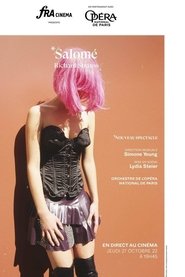 Salome princess of Judea the daughterinlaw...
Salome princess of Judea the daughterinlaw...Salomé (Opéra de Paris) 2022
Salome, princess of Judea, the daughter‑in‑law of King Herod, finds life in her father‑in‑law’s palace dreary. Her curiosity is roused when she hears the voice of Jochanaan, a prophet held prisoner by Herod who is afraid of him. Obsessed by this enigmatic and virtuous man, Salome is ready to do anything to possess him, dead or alive. Drawing on Oscar Wilde’s scandalous play of the same name, in 1905 Richard Strauss produced the work that was to ensure his status as Wagner’s successor in the history of German opera. A dazzling hour and forty minutes, decadent in its very essence, which, for her debut at the Paris Opera, Lydia Steier treats as a dystopia in which amorality rules.
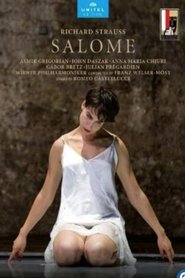 Based on Oscar Wildes lurid play...
Based on Oscar Wildes lurid play...Salome 2020
Based on Oscar Wilde's lurid play, it is an intense exploration of the Salome story. Its sumptuous vocal and orchestral writing seethes and pulsates as Strauss conjures up the brutality of Herod's corrupt court. Richard Strausss opera at the Salzburg Festival, staged by Romeo Castellucci at the Felsenreitschule, was nothing short of a sensation. Debuting in the title role, Asmik Grigorian propelled herself to international stardom with her mesmerizing singing and acting abilities. The exceptional soprano recently won the International Opera Award as best singer.
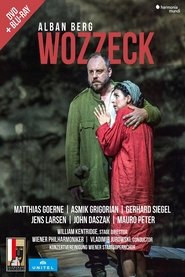 A study of a mans physical...
A study of a mans physical...Wozzeck 2018
A study of a man's physical and mental limitations. In the 24 quite harsh and grueling fragments of the unfinished drama, a body and a mind are tested as far as they can be pushed before their owner goes over the edge. Is there just one thing that proves to be too much for Franz Woyzeck, or is it an accumulation of miseries and torments of a wretched existence? Woyzeck is perhaps not so much a bleak account of how miserable life can be as how much strength is required to deal with the daily vicissitudes of life and how delicate and fragile a balance the human psyche rests on.
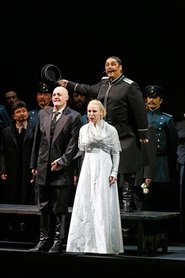 Opera in four acts by Dmitri...
Opera in four acts by Dmitri...Shostakovich: Katerina Izmailova 2016
Opera in four acts by Dmitri Shostakovich (1906 - 1975) Libretto by Dmitri Shostakovich and Alexander Preis after 'Lady Macbeth of the Mtsensk District' by Nikolai Leskov First performance in Moscow, Stanislavsky-Nemirovich-Danchenko Music Theatre, 8 January 1963
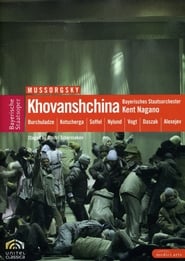 Kent Nagano superbly masters the challenges...
Kent Nagano superbly masters the challenges...Mussorgsky: Khovanshchina 2012
Kent Nagano superbly masters the challenges presented by this score, shapes the dynamics with subtle intensity, and casts the score in a mellow glow. As Marfa, the spurned lover of Ivan Khovansky‘s son Andrei, Doris Soffel unfolds such a rich palette of sonorities, from the pathos of the lower ranges to shaded discant heights, that “one is tempted to speak of a Russian mezzo”. The final chorus, which Mussorgsky did not compose, is played in the orchestrally transparent version of Igor Stravinsky – the third great Russian composer who contributed to making “Khovanshchina“ a timeless, gripping stage work. With his stripped-down sets and historicising costumes, director Dmitri Tcherniakov, one of the new voices of contemporary Russian theatre, builds a bridge to the political present. A lesson in history and music!
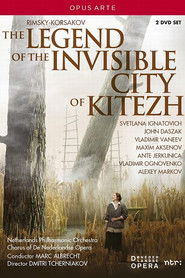 Opera lies at the heart of...
Opera lies at the heart of...The Legend of the Invisible City of Kitezh 2012
Opera lies at the heart of Rimsky-Korsakov's colourful idiom, but performances are few and far between; this realisation of his penultimate and grandest stage work is a very rare and special experience. Kitezh is known as "the Russian Parsifal", which encapsulates its mystical flavour and steady unfolding of a legend of redemption
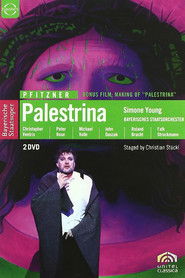 Requiring 38 soloists chorus and large orchestra...
Requiring 38 soloists chorus and large orchestra...Pfitzner: Palestrina 2009
Requiring 38 soloists, chorus, and large orchestra, Hans Pfitzner's "Palestrina" is a challenging opera to stage. In Munich, the city in which it was premiered in 1917, director Christian Stückle, conductor Simone Young, and the Bavarian State Opera met those challenges with stunning success.
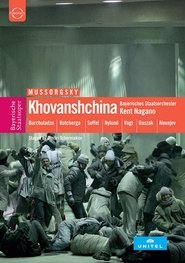 One of Modest Mussorgskys great talents...
One of Modest Mussorgskys great talents...Mussorgsky: Khovanschina 2007
One of Modest Mussorgsky's great talents was his unique ability to transpose words, psychological states, and even physical movements, into music. Kent Nagano rises magnificently to the challenges presented by this score. And Dmitri Tcherniakov's fascinating production emphasizes the timeless quality of this sombre tale of intrigue and power struggles reminiscent of a Greek tragedy, reflecting Mussorgsky's own maxim: "The past in the present - that is my task."
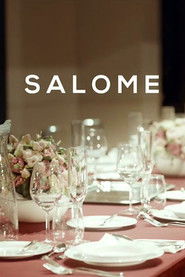
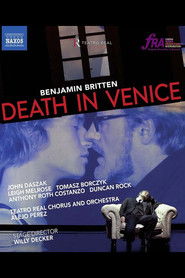 Brittens last opera in two acts...
Brittens last opera in two acts...